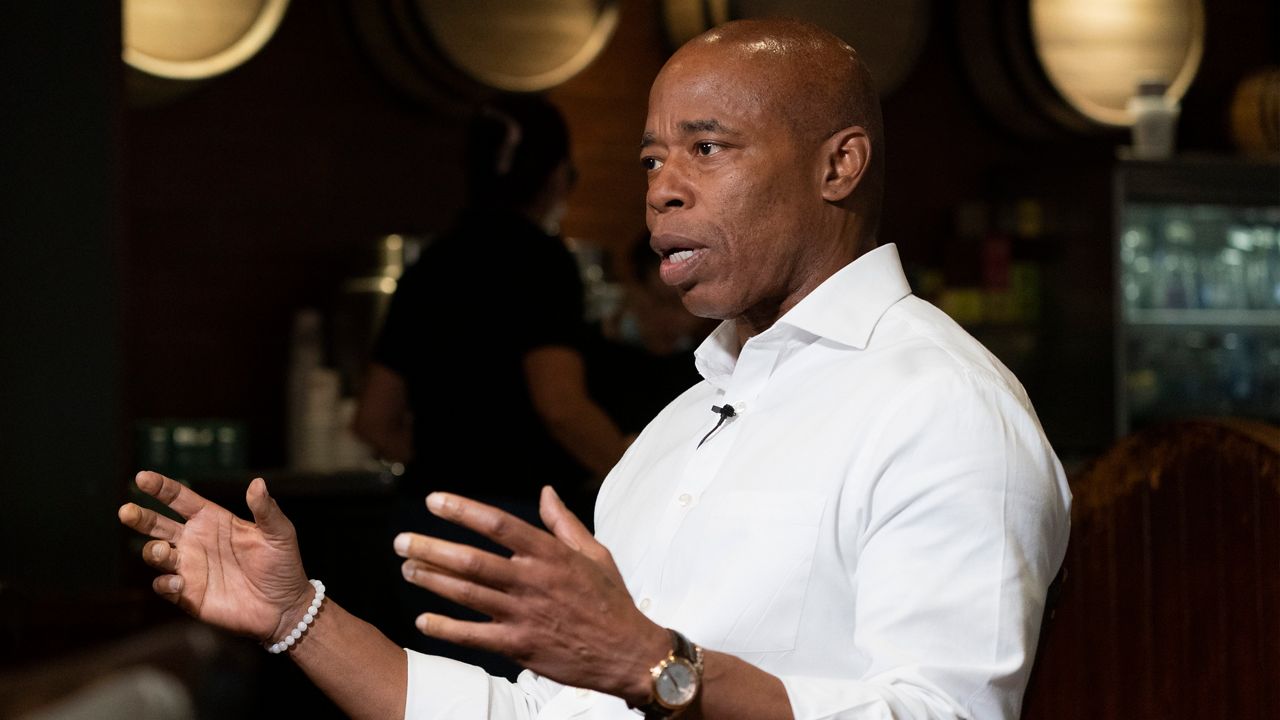For eight long years, Mayor Bill de Blasio would trek to Albany for a chilly reception — and not just from his rival Andrew Cuomo.
Republicans in the state Senate, who held and then lost power in the chamber during de Blasio's tenure, had a frosty relationship with the New York City mayor after benefitting from the campaign largesse of his predecessor, Michael Bloomberg. Now, with Mayor-elect Eric Adams and his calls to make further changes to the state's bail laws, Republicans hope they have a new ally in City Hall.
Or, at the very least, they hope he won't be an enemy.
The olive branch, first reported by The New York Post this week, came from Minority Leader Robert Ortt, who seized on Adams' call for changing the bail laws that have become a focal point of the criminal justice debate in Albany.
“Since the enactment of the original 'bail reform' laws, millions of New Yorkers from every corner of the state have watched as our criminal justice system has spiralled out of control," Ortt wrote in the letter to Adams. "By any standard, the criminal justice agenda approved in Albany over the past few years is now producing disastrous consequences, undermining our law enforcement professionals, increasing violence, and creating more and more innocent crime victims.”
Democrats in the Legislature, especially the lawmakers who had backed the inital changes that eliminated cash bail requirements for many charges, have signaled opposition to making further changes that could reverse the reforms first put in place. A sticking point will likely remain calls to further empower judges to assess whether a defendant is too dangerous, a provision some lawmakers have argued allows for racial discrimination in the justice system.
But Republicans point to a sharp rise in violent crime — a trend that has been seen around the country in the last year — as part of a broader call for needed changes.
Republicans in the Legislature have called for measures meant to provide protections for law enforcement officers, proposals meant to support crime victims and bills that would make changes to the parole system.
Adams, a former state senator himself, will soon have to deal with a state Capitol that has humbled mayors in the past, given the city, despite its power and wealth, remains a creature of the state. Like de Blasio, Bloomberg saw his own proposals and agenda die a slow death in the Capitol.
But unlike de Blasio, Bloomberg was a billionaire, and his deep pockets helped fund Republican efforts to remain in control of the state Senate until 2018, when a Democratic wave ended the party's final vestige of control in Albany.
Adams isn't a billionaire, either. But he won't be running re-election next year. Nearly all of Albany will be.



